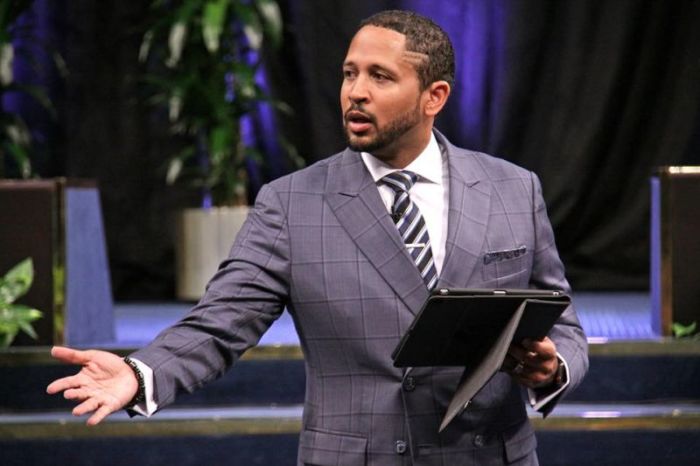Christians can abstain from voting because ‘voting lesser of two evils is still evil,’ Fred Price Jr. says

While encouraging Christians to “vote your conscience” in the upcoming general election on Nov. 3, prominent California megachurch pastor Fred Price Jr. said that a conscientious decision can include abstention because voting “for the lesser of two evils is still evil.”
“Some of you have decided I’m going to vote for the lesser of two evils. Hey, if that helps you sleep at night, I get it. Do you know that you’re still voting for evil? The lesser of two evils is still evil. It’s just less evil than the other evil,” said Price, who leads Crenshaw Christian Center, adding that he still plans on voting this election. He was responding to the question “How should Christians vote?” on Facebook Tuesday.
“So saints, this is why we are a people called out of the world and our system is the Kingdom of God. Regardless of who is in the White House, yes I believe that a particular candidate may be more of a benefit to the Church of the Lord Jesus Christ but I do not see in any way, any candidate that’s ultimately in favor of the Church of the Lord Jesus Christ. So once again, like I said before, you need to vote your conscience,” Price said.
Incumbent President Donald Trump and Democratic presidential nominee Joe Biden are currently the choices presented by the two major political parties and a recent poll from the Pew Research Center suggests deep disparities in how Christians and other religious groups interpret the “lesser of two evils.”
The poll of 10,543 U.S. registered voters nationwide was conducted Sept. 30 to Oct. 5, as Trump spent four days in the hospital amid a White House COVID-19 outbreak.
Biden is currently favored by 90% of black Protestant registered voters, 70% of Jews and 67% of Hispanic Catholics, the poll shows. He is also the preferred candidate for 83% of atheists and agnostics, and 62% of people who describe their religion as “nothing in particular.”
Among white evangelicals, 78% expressed support for Trump while 53% of white Protestants said they would be voting for Trump. Some 44% of white Protestants supported Biden while white Catholic voters were divided between Trump and Biden, 52% to 44%, respectively.
Price argued that he could not encourage people to vote or not vote based on his own experience with the voting process.
To explain his point, he cited the 2010 decision by U.S. District Court Chief Judge Vaughn Walker to overturn the results of a popular referendum known as “Proposition 8” in 2008 in which 52% of Californians voted to approve a state constitutional amendment banning same-sex marriage.
“I honestly can’t tell you whether you should vote. I know some would say, ‘No pastor, don’t say that,'” Price said.
“Not too long ago, there was a particular proposition that was set before the people, the body of Christ in particular. This is something that we needed to vote on because if we were silent it could threaten a very strong and particular belief that we as Christians hold fast to. Anyway, the Christian response was outstanding. We voted and the proposition went in our favor. And then that same proposition that we voted on and went in our favor went before a judge and the judge reversed it, right there on the spot because the judge felt like it,” he argued.
He then shared an anecdote from late Pastor Emeritus of Crenshaw Christian Center L. Craig Hays, who he said “worked in the courts.”
“He told me a few times, he said, ‘Look, in that courtroom, the judge is god.’ And that judge, he or she can do whatever they want in that courtroom and that’s exactly what that judge did when it came to our vote,” he explained, noting how the decision shook his confidence in voting.
“That right there for me personally, as well as my family, that put a sour taste in our mouth regarding specifically the voting system and whether people’s votes actually matter or actually count. So from that day forward, it’s not that I decided I would never vote again but my faith in the system was completely depleted."
He said that in addition to choosing not to vote, Christians can also write in a candidate of their choice.
“You have to vote your conscience. I do plan to vote this year. You know there’s many ways you can contribute and your voice is heard, even if the choice you make you know for a fact is not going to win. You could, for example, write any name in if you weren’t feeling the Democratic or Republican nominee. It’s something you could do,” Price said.




























